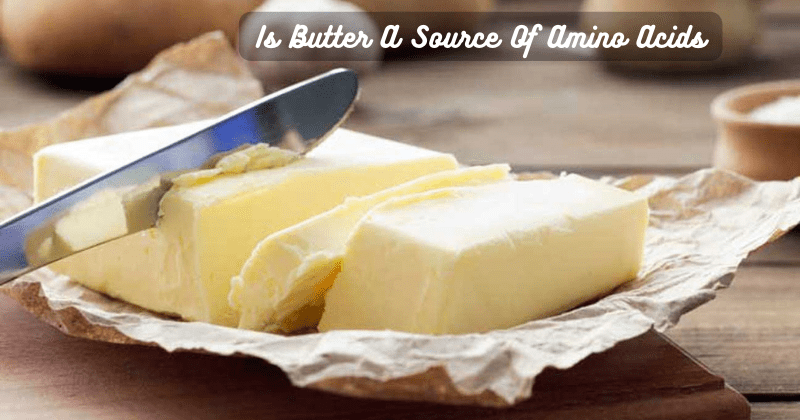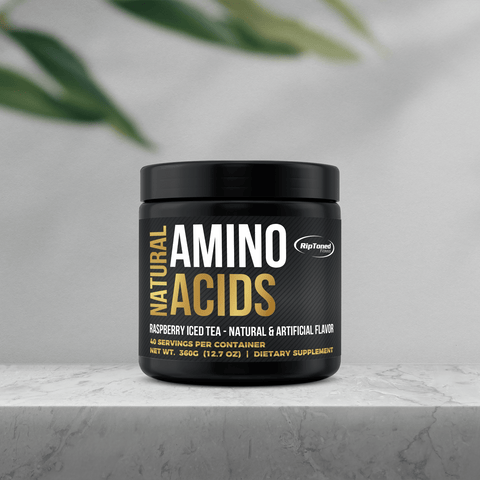
Is Butter A Source Of Amino Acids
Share
Butter is a dairy product that is widely used in cooking and baking. It is made from churning cream or milk, resulting in a solid form with high-fat content. While butter is primarily known for its rich flavor and creamy texture, it also contains important nutrients such as vitamins A, D, E, and K.
Additionally, butter has been found to be a source of essential amino acids, which are the building blocks of protein. This is due to the presence of milk proteins in butter, such as casein and whey. In this article, we will explore the role of butter in providing essential amino acids and its impact on our overall health.
Importance of Amino Acids
Amino acids play a crucial role in our bodies, as they are responsible for building and repairing tissues, producing enzymes and hormones, and supporting the immune system. There are 20 different amino acids that make up the proteins in our body, and nine of them are known as essential amino acids.
The body cannot produce essential amino acids, which must be obtained through food sources. This is where butter comes in – it contains all nine essential amino acids, making it a complete protein source. Other sources of complete proteins include meat, eggs, and dairy products.
Amino Acids in Butter
Butter is primarily composed of milk fat (around 80%), water (around 16%), and milk solids (around 4%). Milk solids consist of proteins and carbohydrates, with proteins making up about 3% of butter's total composition. These milk proteins contain all nine essential amino acids but in varying amounts.
The two main types of milk proteins found in butter are casein and whey. Casein makes up around 80% of the protein content in butter and is a slow-digesting protein that provides a sustained release of amino acids into the body. Whey, on the other hand, makes up the remaining 20% and is a fast-digesting protein that quickly boosts amino acids in the body.
Is Butter A Source Of Amino Acids
So now, the question remains – is butter a source of amino acids? The answer is yes. While there are varying amounts of essential amino acids in butter due to its composition, it still provides a significant amount of these important building blocks for our body's functions. One tablespoon (14 grams) of butter contains approximately 15-20% of our daily requirement for essential amino acids.
However, it is important to note that butter should not be relied upon as the sole source of essential amino acids in our diet. It should be consumed in moderation along with a balanced and varied diet to ensure we are getting all the essential amino acids and other important nutrients our body needs.
How to use Butter to get Essential Amino Acids
If you are looking to incorporate essential amino acids into your diet through butter, there are a few ways to do so.
- Use butter as a spread on bread or crackers for a quick and easy snack that provides essential amino acids.
- Cook with butter instead of other oils for added flavor and nutrition.
- Bake with butter to add a creamy texture and boost of essential amino acids to your treats.
- Add a spoonful of butter to soups, sauces, or other dishes for an extra dose of essential amino acids.
- Use grass-fed butter for an even higher level of essential amino acids, as it is known to have a better balance of fatty acids and nutrients due to the diet of the cows.
- Consider trying different types of butter, such as ghee or clarified butter, which are also sources of essential amino acids.
How much Butter is Too Much?
While incorporating butter into your diet can provide a source of essential amino acids, it is important to consume it in moderation. Butter contains high amounts of saturated fats, which can increase the risk of heart disease if consumed in excess. The American Heart Association recommends limiting daily saturated fat intake to 5-6% of total calories, which equates to about 2-3 tablespoons of butter per day.
It is also important to consider your overall diet and lifestyle when determining how much butter is appropriate for you. If you have a high intake of other sources of saturated fats, such as red meat or processed foods, limit your consumption of butter to maintain a balanced diet. On the other hand, if you have a balanced and varied diet with moderate levels of saturated fats, incorporating butter in moderation can provide essential amino acids and other important nutrients.
Mistakes to Avoid
There are a few mistakes to avoid when it comes to using butter as a source of essential amino acids.
- Overconsumption: As mentioned before, consuming too much butter can lead to an increase in saturated fat intake, which can have negative effects on our health.
- Substituting for other protein sources: While butter does contain all nine essential amino acids, it should not be substituted for other protein sources in our diet. It is important to have a variety of protein sources to ensure we are getting all the essential amino acids and other nutrients our body needs.
- Not considering allergies or intolerances: Some individuals may have an allergy or intolerance to dairy products, which can make butter consumption problematic. It is important to consult with a healthcare professional if you have these concerns before incorporating butter into your diet.
- Not considering lifestyle and dietary choices: As mentioned before, it is important to consider your overall diet and lifestyle when determining how much butter to consume. If you follow a plant-based diet or have other dietary restrictions, butter may not be the best source of essential amino acids.
- Not incorporating butter in moderation: While it is okay to include butter in your diet for essential amino acids, it should not be consumed in excess. Moderation is key when it comes to any food, including butter.
FAQs
Are there any other sources of essential amino acids besides butter?
Yes, there are many other food sources that contain all nine essential amino acids, such as meat, eggs, dairy products, and soy-based foods. It is important to have a varied diet to ensure we are getting all the essential amino acids our body needs.
Can I get my daily requirement of essential amino acids from butter alone?
While butter contains essential amino acids, relying on it as the sole source for these important building blocks is not recommended. It should be consumed in moderation along with a balanced and varied diet.
Is grass-fed butter better than regular butter when it comes to essential amino acids?
Grass-fed butter may have a higher level of essential amino acids and other important nutrients. However, consuming it in moderation and as part of a balanced diet is still recommended. The most important thing is choosing butter that fits your dietary needs and preferences.
Conclusion
In conclusion, butter can be considered a source of essential amino acids. While it should not be relied upon as the sole source for these important building blocks, incorporating it into a balanced and varied diet can provide essential amino acids and other important nutrients.
Remember to consume butter in moderation, consider your overall diet and lifestyle, and avoid common mistakes when using it as a source of essential amino acids. So go ahead and enjoy that slice of buttered toast, or add some butter to your next dish for a tasty and nutritious addition to your diet. Happy eating!

